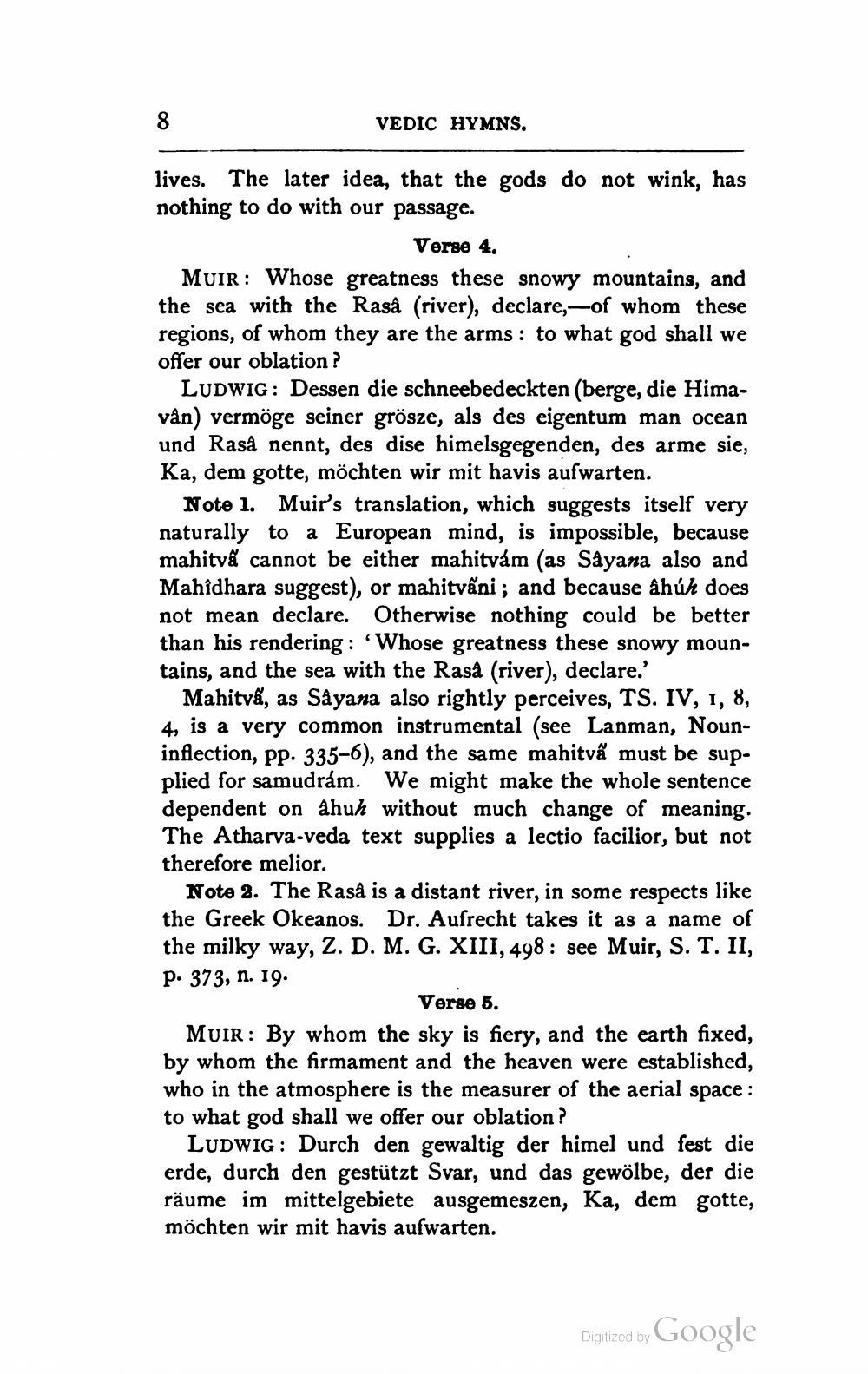________________
VEDIC HYMNS.
lives. The later idea, that the gods do not wink, has nothing to do with our passage.
Verse 4. MUIR: Whose greatness these snowy mountains, and the sea with the Rasa (river), declare, -of whom these regions, of whom they are the arms: to what god shall we offer our oblation?
LUDWIG: Dessen die schneebedeckten (berge, die Himavân) vermöge seiner grösze, als des eigentum man ocean und Raså nennt, des dise himelsgegenden, des arme sie, Ka, dem gotte, möchten wir mit havis aufwarten.
Note 1. Muir's translation, which suggests itself very naturally to a European mind, is impossible, because mahitvã cannot be either mahitvám (as Sayana also and Mahîdhara suggest), or mahitváni; and because âhúh does not mean declare. Otherwise nothing could be better than his rendering : Whose greatness these snowy mountains, and the sea with the Rasà (river), declare.'
Mahitvã, as Sayana also rightly perceives, TS. IV, 1, 8, 4, is a very common instrumental (see Lanman, Nouninflection, pp. 335-6), and the same mahitvã must be supplied for samudrám. We might make the whole sentence dependent on ahuh without much change of meaning. The Atharva-veda text supplies a lectio facilior, but not therefore melior.
Note 2. The Rasa is a distant river, in some respects like the Greek Okeanos. Dr. Aufrecht takes it as a name of the milky way, Z. D. M. G. XIII, 498: see Muir, S. T. II, p. 373, n. 19.
Verse 6. MUIR: By whom the sky is fiery, and the earth fixed, by whom the firmament and the heaven were established, who in the atmosphere is the measurer of the aerial space : to what god shall we offer our oblation?
LUDWIG : Durch den gewaltig der himel und fest die erde, durch den gestützt Svar, und das gewölbe, der die räume im mittelgebiete ausgemeszen, Ka, dem gotte, möchten wir mit havis aufwarten.
Digitized by Google




